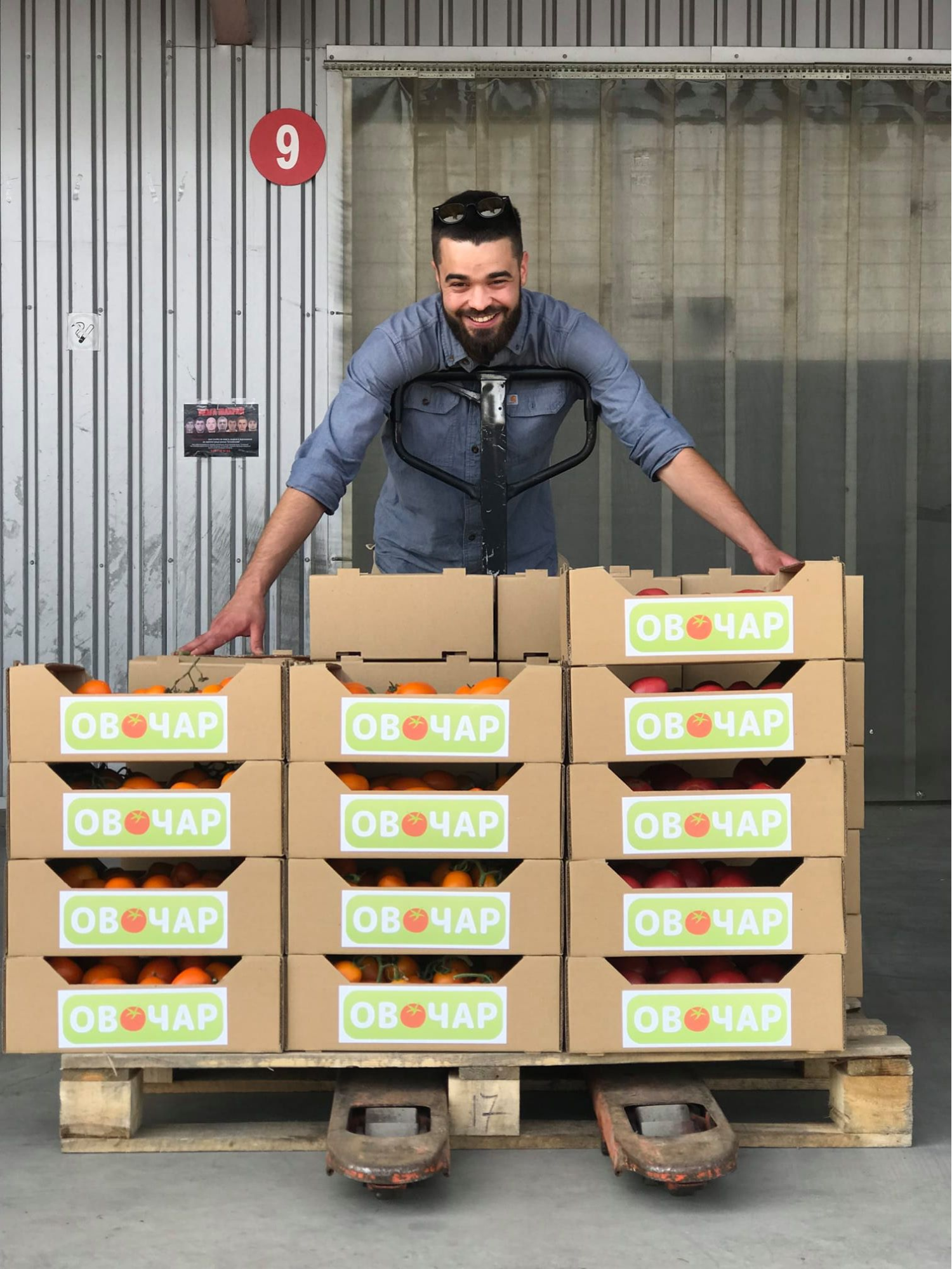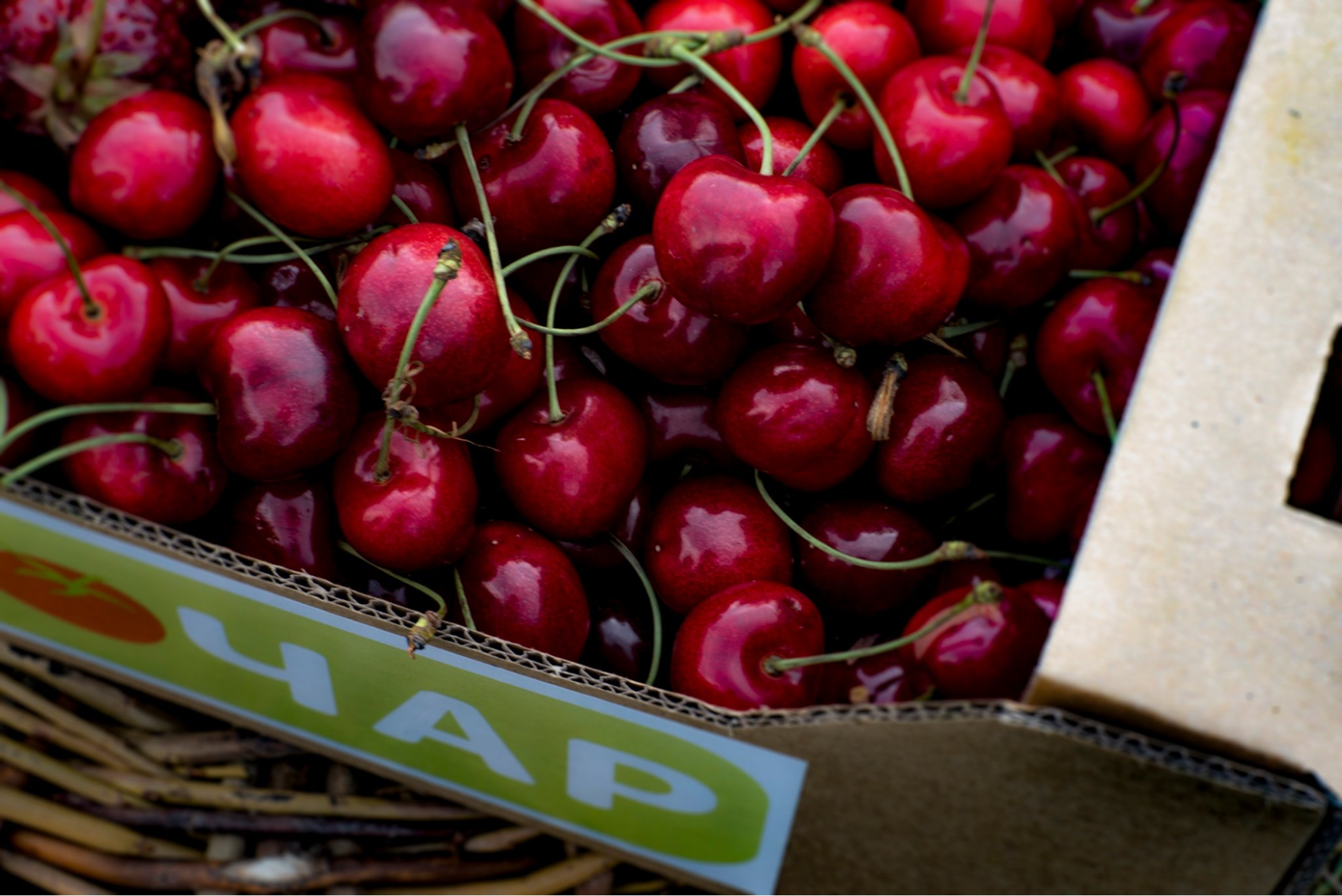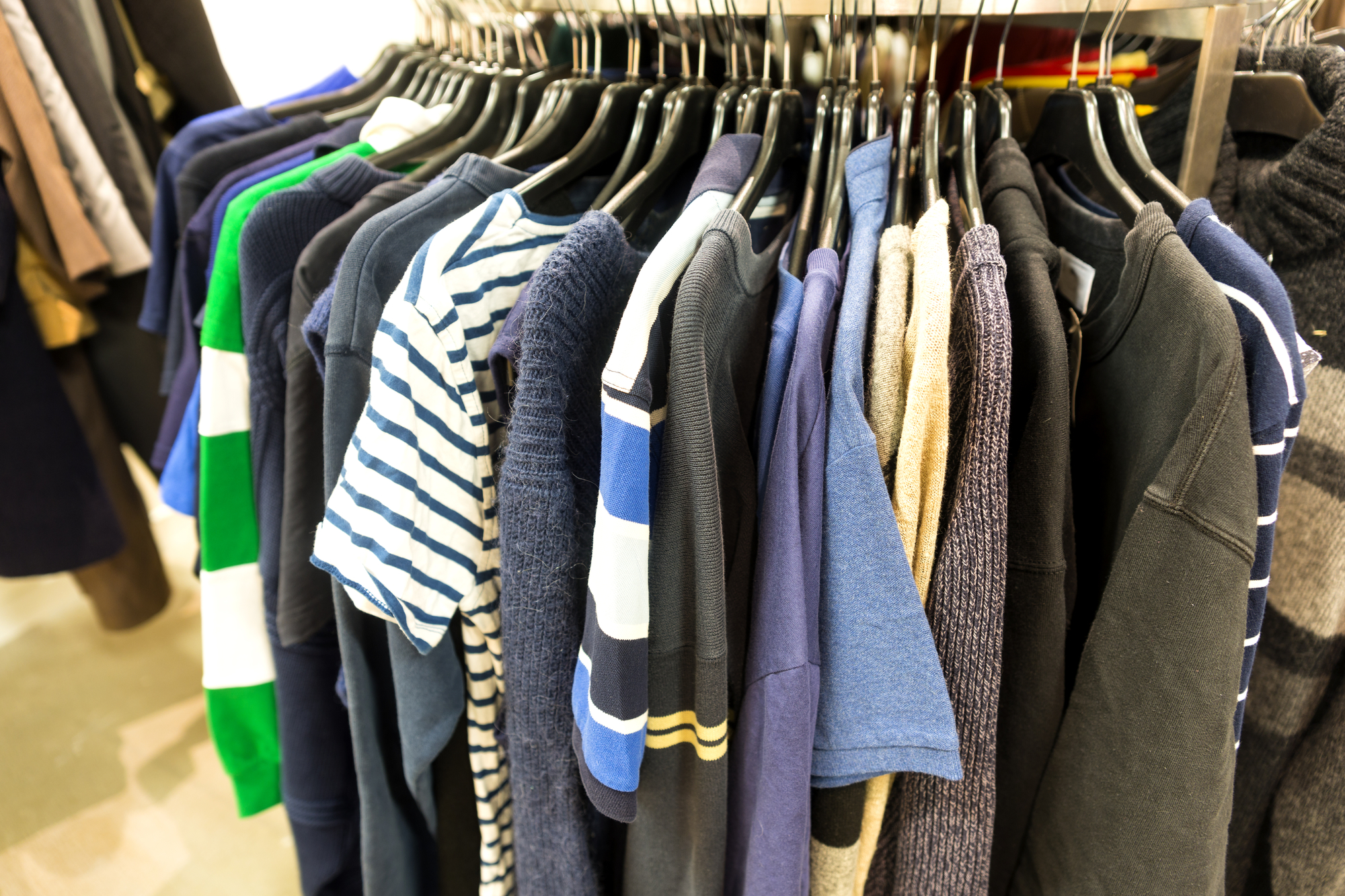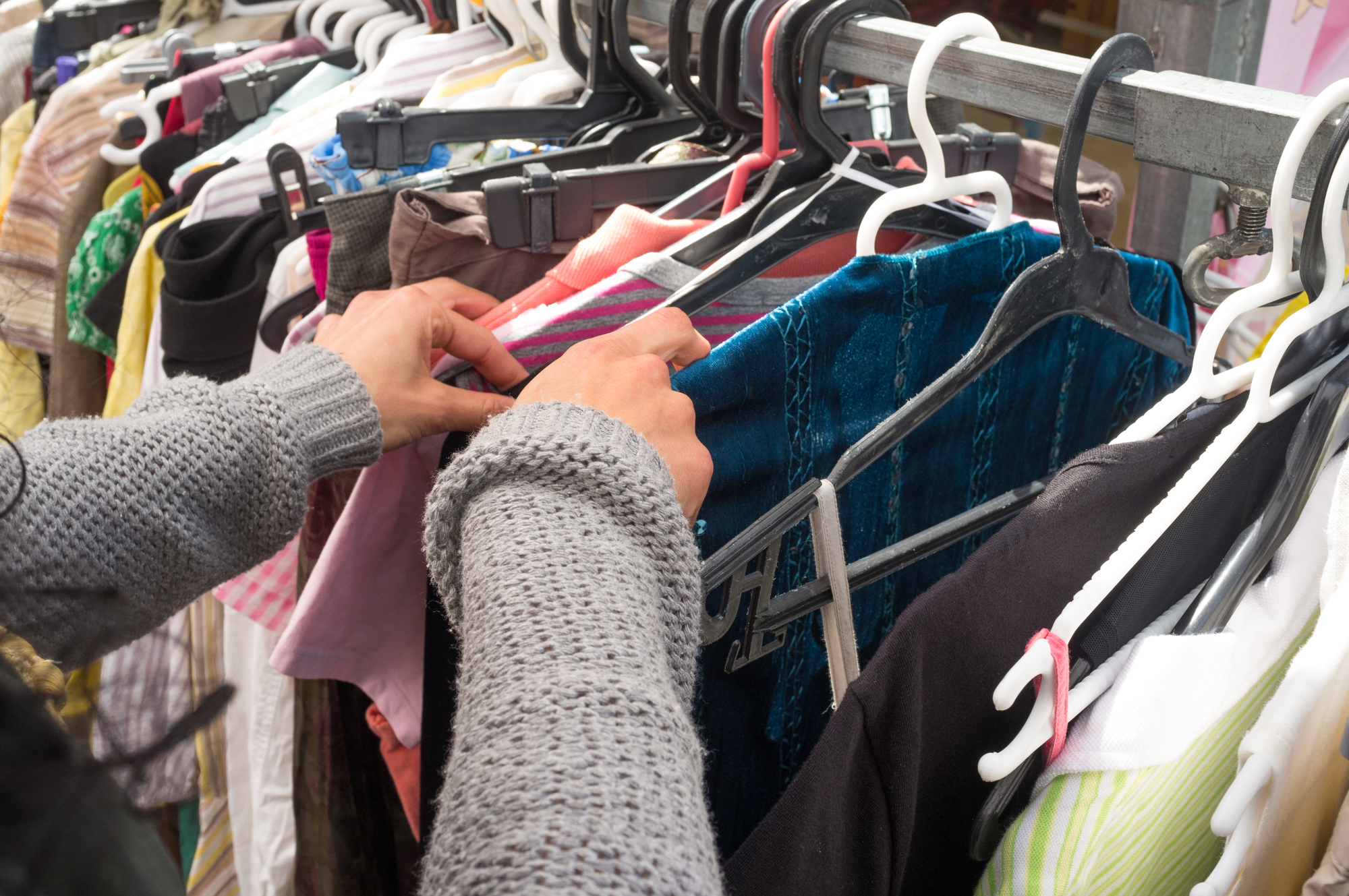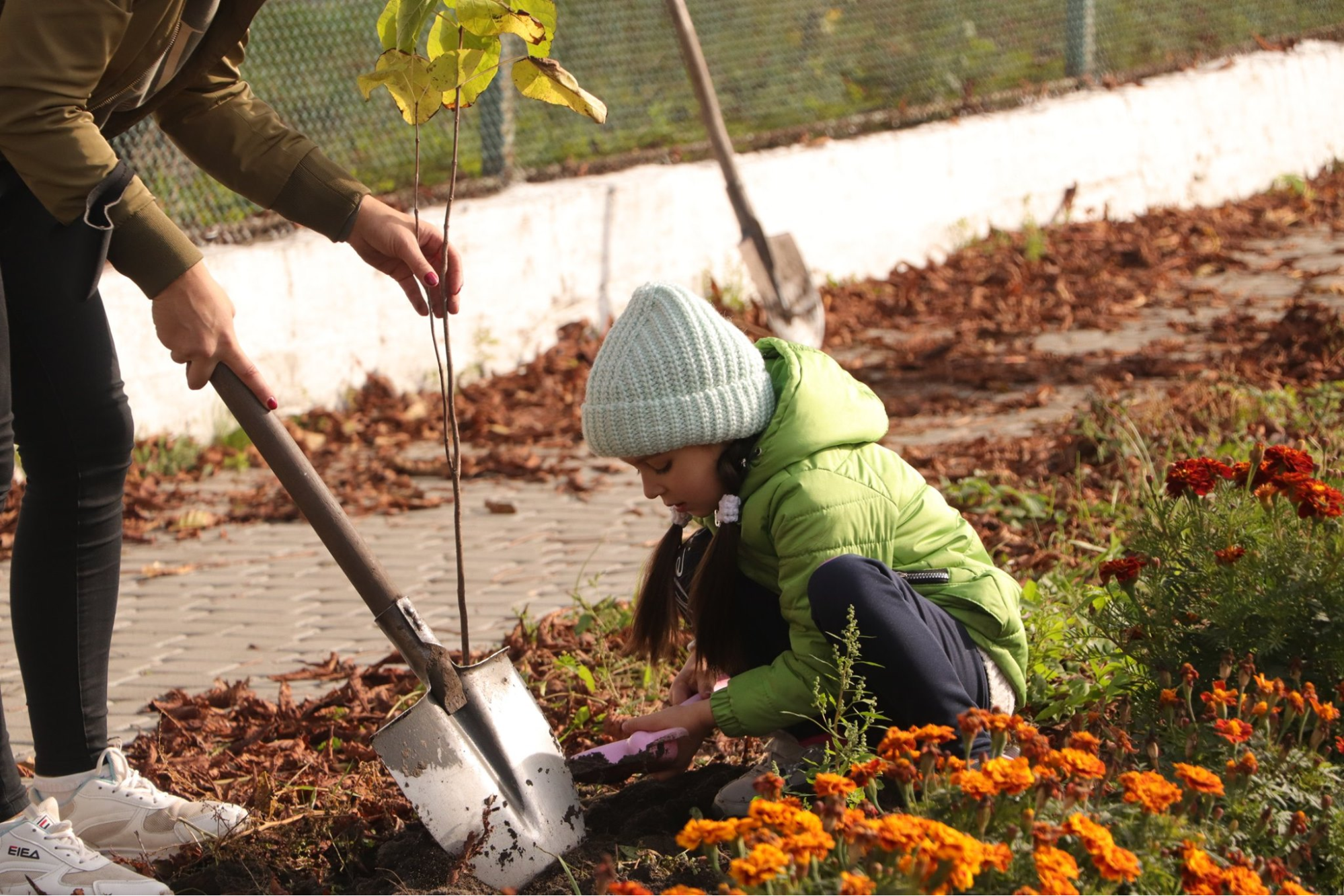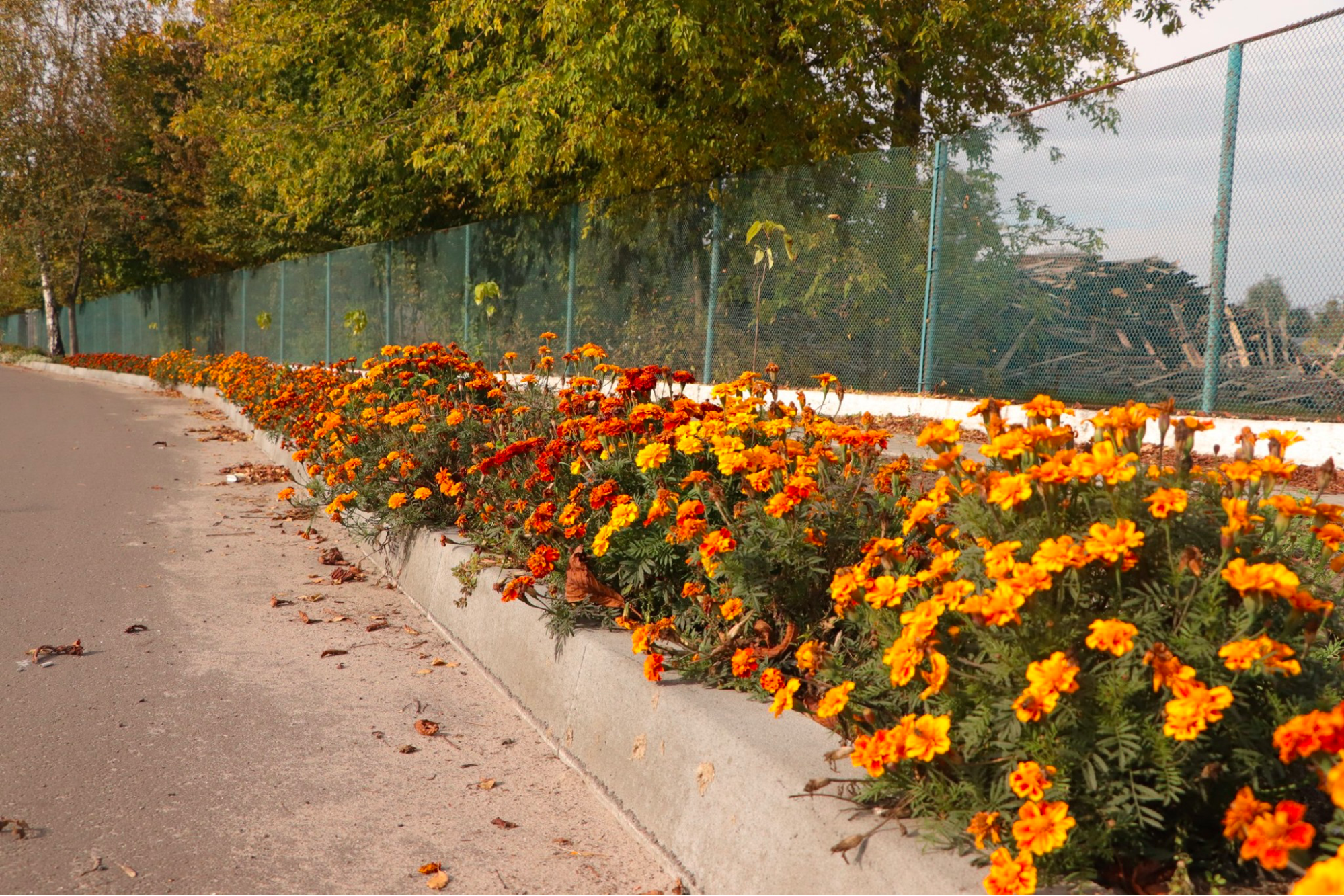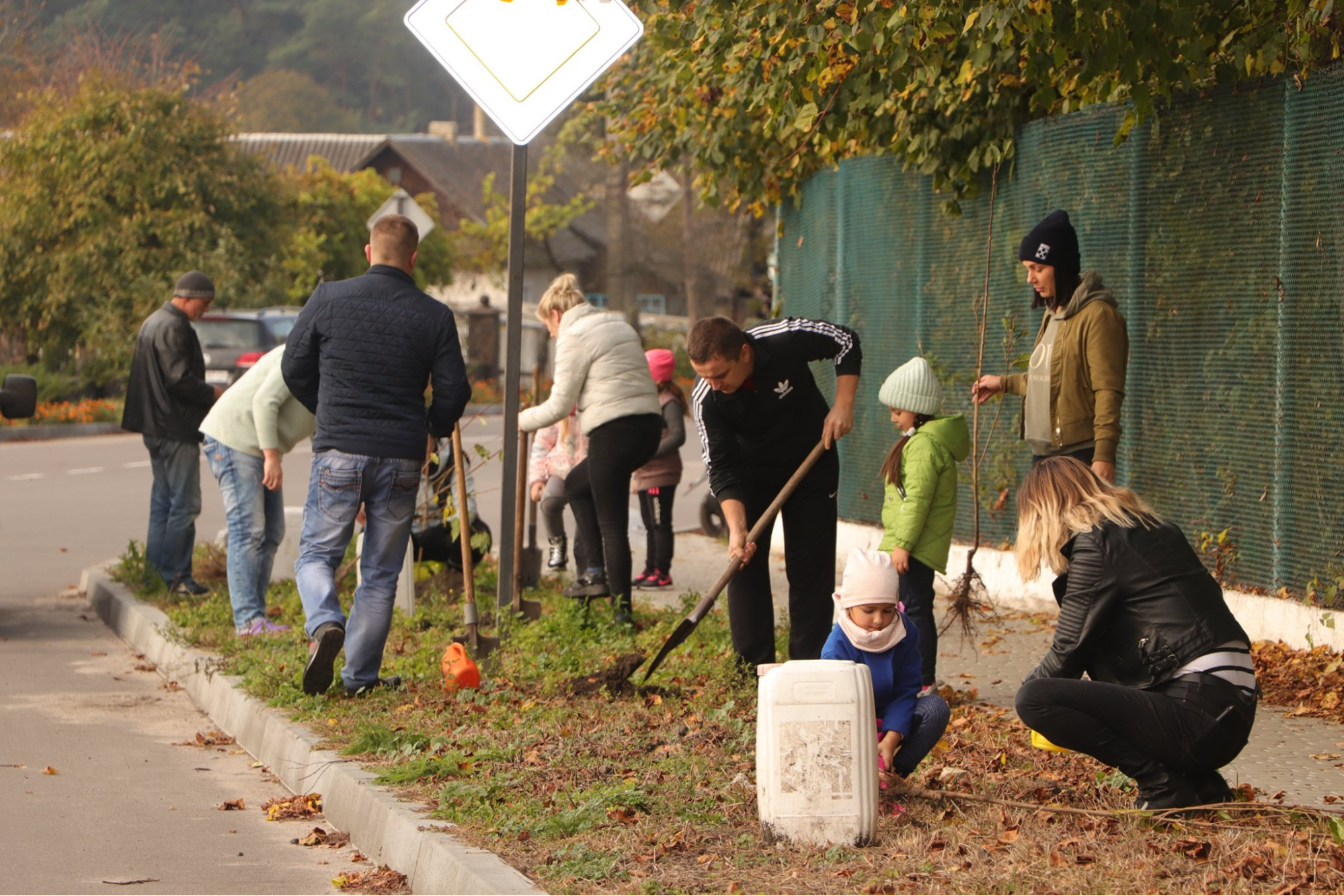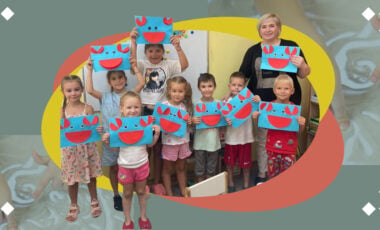Vegetables, sustainable fashion and DIY common space: three stories about Ukrainians who started their own business
A restaurateur who couldn't find fresh produce, a designer who finds second-hand pieces, and a woman who created a sakura alley in Smyha
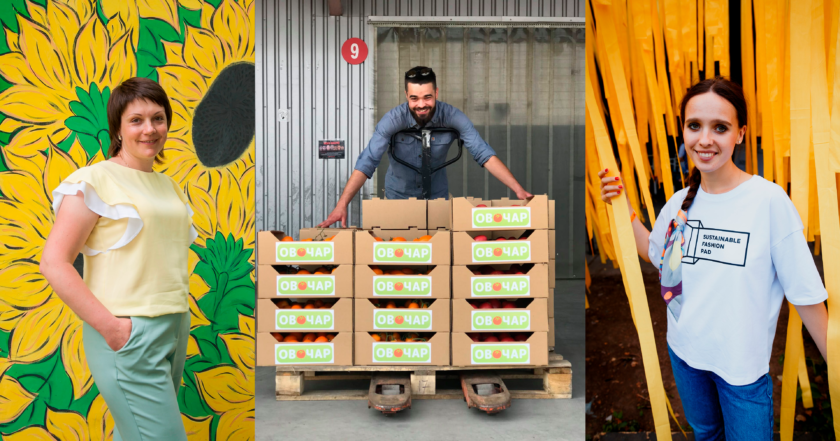
Decisive and solution-driven. These are probably the best epithets for people, discussed in this article. Three Ukrainians spoke about how they managed to create socially useful businesses by meeting their own needs as part of the DOCUSPACE Film Club Summer conversation.
Inspirational solutions: this is how we describe the three following stories.
Ovochar-s are the new Wild West market conquerors and fighters for environmentally friendly products
Bohdan Chaban, a veteran of the Anti-Terrorist Operation and an immigrant from Donetsk, united Ukrainian farmers and founded an environmental startup. Earlier this year, a new company, Ovochar, launched in Ukraine: an organic vegetable store, where you can get a basket of fresh products from the greenhouse directly from the farmer. And you don't need to go to the market or go to the store, all orders are placed online and delivered to your door.
What inspired them?
Ovochar was founded by Bohdan Chaban, who worked in the restaurant business for a long time. The entrepreneur complained that there was a lack of quality products that suppliers could offer, so Bohdan dreamed of creating a small farm that would produce products that would meet his requirements. As they say, you just have to want it, and the universe will hear the call: friends introduced Bohdan to Kamianka-Dnistrovska, the largest region in Ukraine, where greenhouse vegetables are grown on three thousand hectares covered with film. "For comparison, the largest greenhouse plant in Ukraine has an area of 40 hectares, and here as many as three thousand! There are several regions similar to this one, but this one is the largest," Bohdan surprises us.
What did they have to face?
When the entrepreneur began to explore the region, he understood why it was so difficult for him to find fresh produce. First, small farmers don't have access to markets, so they're forced to work through intermediaries who build a long chain until the products reach your table. Second, there's a question of such products' safety:
"If a person realizes that they urgently need money, and the tomatoes in the greenhouse aren't ripe yet, they can buy growth stimulants for plants in the nearest store that sells plant chemicals, treat the plant and remove the red tomatoes in a few days," says Bogdan. "We call this market 'Wild West' because it looks like that. Caravans of small cars loaded with some tomatoes go to the wholesale market, where they're traded, resold. All this goes for black cash and illegally. Our mission is to make this market environmentally friendly, not only in terms of cultivation but also from an economic point of view.
What happened in the end?
Bohdan decided to unite producers who would like to change and develop, gathering them into a "cooperative," and to give this cooperative access to markets, retail, consumers under a single brand, "Ovochar." Now, according to Bohdan, a vegetable grower is a profession:
"We call vegetable growers people who cultivate vegetables in the garden in the concept of environmental consciousness, don't use aggressive chemicals, and strive to switch to the most organic way of growing vegetables," he says.
Useful tips: how to choose safe vegetables on the market?
If you go to the market and buy vegetables from the elderly, in 90% of cases, vegetables aren't grown by them. According to Bohdan, most likely people bought these vegetables at some wholesale market; people brought vegetables from another market to the wholesale market in the region where they grow everything, and there they bought products from 15 different farmers, and no one controls anything there. Bohdan says that all the measurements regarding the use of chemicals for growing our products are formal. Even certification from the regulatory body isn't a guarantee that vegetables will be safe because out of 20 tons of vegetables, only 5 kilograms are tested. Ovochar products are controlled by special devices by blind selection in the laboratories chosen by the platform. They also monitor the production process, make sure what vegetable growers use for growing.
- The consumer can look at the taste and smell in the first place, although the smell depends on the ripeness of the vegetable. "If I chose where to buy, I would buy from someone I trust," says Bohdan.
- In Ukraine, products with an organic standard marking have an international standard that checks the growing process, not the final product. As it's a separate category of manufacturers, such products will be much more expensive than the products we're used to seeing.
- Finally, business advice. It's not the consumer's fault that they create garbage, it's the responsibility of the manufacturer. So every business has to think about what it creates and what's left after that: plastic bags or packaging that can be recycled and used as fertilizer.
Upcycling and "sustainable fashion": why does the designer advise buying second-hand?
The non-governmental organization, Bezzaive, is working to help manufacturers create products that would comply with the principle of sustainable fashion. The organization coordinates round tables with experts from various industries, conferences on the circular economy, and 17 goals of sustainable development, educational programs, special projects with the press and opinion leaders.
How did it all start?
Yana Chervinska, now the founder of the NGO Bezzaive, started creating her collections in her third year of training as a designer. At some point, she didn't have enough money, so she decided to use the old clothing to create new ones.
"It was a rush, a design solution, the first 'sustainable' decision, albeit an unconscious one," the girl recalls.
What did she have to face?
The Ukrainian woman had to work hard and gain experience before starting her own business in Ukraine. Initially, as an intern of the Spanish brand, Camper, where Yana was also engaged in upcycling in the workshop.
"There were just a ton of leftover Camper products! Old fabrics and accessories, we worked with it all," the designer recalls.
What happened in the end?
After returning to Ukraine, Yana decided to create her platform. There was no such thing in Ukraine, there was only the Fashion Revolution platform by Daria Marusyk and Tania Solovei. Together with Ukrainian Fashion Week and Kurazh Bazaar, the girls started implementing several projects, and after that Yana created the NGO Bezzaive, where the main focus is consumption. Now the designer continues her activity as an independent consultant in the field of sustainable fashion, helping other brands to choose stable fabrics to create collections.
Useful tips: how to follow the principle of sustainable fashion?
"Recently, my colleagues and I discussed my sandals, I bought them on Instagram from an acquaintance who sold them for ridiculous money. These are Givenchy sandals and I've been wearing them for three years. That is, you improve your quality of life if you don't consume a mass market. How to feel you've become more environmentally friendly? You're getting more high-quality products. I have T-shirts that I bought a few years ago and they don't spoil. There's a T-shirt that I bought in Seoul and I think it will be passed on to the next generation.
It's necessary to understand that there's a huge amount of textile waste, people behind sewing receive pennies. You need to think about what you bring to this world and change your life," says Yana.
- The most important advice is to sort through the wardrobe, select things that you don't wear, and give them away, for example, to "Laska."
- Conscious consumption excludes the consumption of the mass market, so one should buy things in the middle plus segment, or on the reselling platforms of branded things, for example, on kyivness.
Sakura Alley in Smyha: how one person managed to unite community residents and improve public space
How did it all start?
In 2016, a new administrative unit emerged in the Rivne region, Smyha village united territorial community; a year later, Vita Kostiuk, who is now the head of the NGO Intonation of CHANGE Community Development Agency, began working in the village council. In 2019, repairing work began on the street where Vita lived, and contractors left construction debris in the middle of the street, where the green area should be. Numerous appeals to local deputies didn't yield any results, and then Vita wondered: how about trying to green the area without using funds from the local budget?
"As a result, my neighbors and I were able to clear the area, bring the soil. But it was somehow empty there, and we decided to continue landscaping the area. Just at that time, our NGO launched a volunteer school, and we decided to create "Alley of Marigolds," or "Alley of Responsibility." Everyone could plant a flower and decorate the settlement ".
After Vita posted on social media, a flurry of people wanted to decorate the area. People brought and planted marigolds, and soon an entire alley of flowers appeared. Then a local entrepreneur who bought sakura joined the cause, and last fall an alley of trees was planted with the first-graders.
What did you have to face?
Vita's struggle for green space wasn't easy: she had to face resistance and a certain infantilism of the community, the desire of fellow villagers to shift responsibility to someone else, and banal thefts.
"I can't say that there were only happy moments. There were a lot of phrases 'Do you need it?' 'Why do you need it?' because the authorities should do it. We have a utility service, they get money for it. Besides, we have a lot of retirees living on the street and there's no one to work on it. There are often unpleasant surprises; there were cases when several sakura trees were stolen, but other neighbors had already bought trees and planted them," said Ms. Kostiuk.
What happened?
Now planting flowers is an annual tradition, and soon the community is going to celebrate its street.
"I hope that small steps and actions will inspire other residents of our community to develop the space in which they live because together we can do a lot. The main thing is to have the first ones who can present ideas and attract others," Vita shares.
Useful tips for those who want to live in a comfortable space
- If we listen to such critical remarks and do nothing, shift responsibility, then nothing will change. We cannot change other people. First, we need to change ourselves and change our attitude to what's happening around us.
- Feel free to ask for help. My husband and I talked about the fact that in Smyha, we could do more than we could do elsewhere. Because we know a lot of people here and we can just come up and offer to implement some initiative together. This may work. And when even a person doesn't agree to help, you don't make a tragedy out of it, we make a choice ourselves: do we want to live in garbage, or do we want a clean space to develop around. I'm a mother of three children, and children are constantly walking on this street. I want my children to grow up in beauty and receive a culture of behavior from an early age and live in such an ecosystem and harmony.
The conversation took place within the "Film Club Summer at DOCUSPACE" project. Until the end of August in the DOCUSPACE online cinema, you can watch the best documentaries from the program created in collaboration with the DOCU/CLUB project.
The DOCU/CLUB network today is more than 400 film clubs all over Ukraine with a collection of more than 120 documentaries. The organizers formed a special summer program for the audience.
Rubryka is an information partner of the "Film Club Summer at DOCUSPACE" project

Paying with plastic instead of money: how an eco-friendly coffee shop operates in Dnipro

Hlukhiv sorts. How a local resident involved the entire city in sorting waste

Activists saved a forest near Kyiv: a story of a community that succeeded



